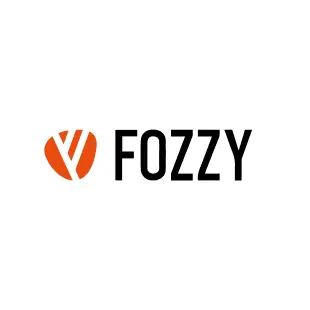That’s where chatbots come in – they offer a more intuitive way for patients to get their questions answered and add a personal touch. Using AI to imitate an actual conversation, medical chatbots will send personalized messages to users. Backed by sophisticated data analytics, AI chatbots can become a SaMD tool for treatment planning and disease management.
In addition, virtual assistants can automate in-person visits and remote delivery of healthcare services via telephone. While handling many patients, you may miss out on crucial patient information. Using virtual assistants for managing patient intake can provide patients with timely and personalized healthcare services.
Looking to maximize your team’s capacity?
This is an incredibly powerful way to convert a lead into a patient, especially in the middle of the night, when no one is awake. If a potential patient is looking at your website at 3 am in the morning and wants to make an appointment, it is for a definite need. Being able to assist them like this will only add to their positive experience and potential glowing review. A Chatbot is not a robot that sits in your lobby, keeping your patients’ company while they wait for their appointment. It is software that lives on your website, ready to help patients and engage with them.
- World-renowned healthcare companies like Pfizer, the UK NHS, Mayo Clinic, and others are all using Healthcare Chatbots to meet the demands of their patients more easily.
- Collaborating with clients to help them become high-performance businesses.
- Horizontal scaling of microservices was enabled by using Docker containers in combination with Kubernetes.
- Using virtual assistants for managing patient intake can provide patients with timely and personalized healthcare services.
- Give your patients hassle-free insurance services with Kommunicate’s AI chatbot for insurance.
- Also, outline how to create your own chatbot or download the ready-to-use chatbot template.
With a mental health chatbot by your side, you’re never alone in facing life’s ups and downs. Even though building a custom chatbot from scratch may be much more challenging than using a ready solution, it is very likely to pay off. Bots in the healthcare system are deemed most helpful to this puzzle as they keep their patients engaged 24×7 and provide quick assistance. Currently, too much misinformation abounds several common public health concerns, such as COVID-19. Therefore, several institutions developed virtual assistant systems to ensure that individuals receive correct information and help save patient lives. Users can easily schedule vaccination appointments themselves with a virtual assistant, saving your expensive human resources.
+ Benefits for patients?
Your personal data will be used to support your experience throughout this website, to manage access to your account, and for other purposes described in our privacy policy. To secure data, the team followed stringent industry-standard regulations like FHIR and medical information security standards like HIPAA. All personal data and medical profiles were encrypted, transmitted, and stored separately to eliminate any possibilities of data leakage.

If they see that there are no more refills or the prescription has expired, then the chatbots ask patients to select the time for an e-visit to renew a prescription. But, sometimes, they forget to bring the documents which, in turn, will give a less sense of the patient’s progress. Chatbots metadialog.com help the service provider to maintain patient data via conversation or last calls. Now businesses have got a complete idea of what a chatbot is and its importance in their organization. Healthcare chatbot help to automate all repetitive and low-level tasks of the medical representatives.
Collaboration With Patient and Clinician Partners as Knowledge Experts
The ability to have your questions answered instantly by a chatbot makes it easier for people to find answers and get back to what they were doing. Several issues need to be resolved despite the potential advantages of chatbots for patient empowerment. For instance, chatbots might not always be able to deliver precise or trustworthy information, nor might they be appropriate for all patient demographics. Furthermore, it’s possible that chatbots can’t offer patients the same degree of empathy and emotional support as a real health care provider. To ensure their safe and efficient use, it is crucial to carefully analyze chatbots’ use cases and constraints in health care.
What is a medical chatbot?
A medical chatbot is used by healthcare providers to provide instant support to existing and potential patients. It acts as a customer support agent that answers questions 24/7.
We’ve also delivered MongoDB-based operations management software for a pharma manufacturer. With ScienceSoft’s managed IT support for Apache NiFi, an American biotechnology corporation got 10x faster big data processing, and its software stability increased from 50% to 99%. ScienceSoft has helped one of the top market research companies migrate its big data solution for advertising channel analysis to Apache Hive.
A message from a patient to health care workers: Always remember your humanity
The chatbot provides a conversational interface that allows patients to easily access information and interact with healthcare providers. Patients can ask questions, get answers, and even book appointments through the chatbot. Kuki AI’s chatbot services are revolutionizing healthcare by making it easier and more efficient for healthcare providers to interact with their patients. By leveraging AI technology, the chatbot can provide more accurate and timely diagnoses, reduce wait times, and automate administrative tasks.
Leveraging Artificial Intelligence to Support Medication Adherence – HealthITAnalytics.com
Leveraging Artificial Intelligence to Support Medication Adherence.
Posted: Wed, 17 May 2023 07:00:00 GMT [source]
Patients may receive individualized responses from chatbots that are catered to their particular requirements and interests. The “Chat” part of a Chatbot indicates that it is primarily designed to interact and chat with patients and potential patients. Since our chatbot works in the healthcare industry, it is a Medical Chatbot. A medical chatbot is designed to have a conversation or a discussion with a real human/patient. Depending on how the person responds or chats with the bot, it will return answers as programed into it.
Cognitive AI for Healthcare
These measures ensure that only authorized people have access to electronic PHI. As per a study published in the Canadian Journal of Psychiatry, there are only nine psychiatrists per 100,000 people in developed countries and 0.1 for every 1,000,000 in lower-income countries. 78% of physicians believe that a medical virtual assistant can be extremely helpful for booking their appointments.
Amouranth launches AI chatbot that lets fans go on ‘dates’ with ‘her’ – Polygon
Amouranth launches AI chatbot that lets fans go on ‘dates’ with ‘her’.
Posted: Mon, 22 May 2023 07:00:00 GMT [source]
All these forms of registration, as a rule, continue to work, but now the doctors’ schedule updates are also synchronized with the chatbot. It can also send appointment reminders at a convenient time for the patient. Developing medical chatbots comes with its own set of challenges that need to be addressed. Here are some of the most valuable benefits of a custom chatbot for healthcare.
User Characteristics Inference
Chatbots can handle several inquiries and tasks simultaneously without added human resources. This can save you on staffing and admin overhead while still letting you provide the quality of care your patients expect. Whatever it is, patients can ask questions and get evidence-based answers back.
Juji chatbots can read between the lines to truly understand each user as a unique individual and personalize care delivery, improving care outcomes. Juji powers cognitive AI assistants in the form of chatbots for telehealth. We create a unique conversational design to match your company, your needs, and goals. We use our 6 years of experience to create the most engaging chatbots on the market.
Media Services
In fact, many people get frustrated and hang up before their call is answered. There are several reasons why healthcare chatbots offer better patient engagement than traditional forms of communication with physicians or other healthcare professionals. Chatbots are available 24/7 and provide instant responses, improving access to healthcare information and services. Plus, medical emergencies arise anytime from identifying patient symptoms to scheduling appointments. The medical sector is a very sensitive area, therefore, medical professionals might not have the time to tend to everything all the time. The software segment held the largest market share in terms of revenue of the global Healthcare Chatbots market.
- Health crises can occur unexpectedly, and patients may require urgent medical attention at any time, from identifying symptoms to scheduling surgeries.
- This integration has allowed Sensely to provide comprehensive healthcare support to users in a seamless and efficient manner.
- The chatbot is HIPAA compliant and uses end-to-end encryption to ensure patient data is kept secure.
- Then, when you’re ready for unlimited users and priority support, upgrade to Pro.
- To ensure their safe and efficient use, it is crucial to carefully analyze chatbots’ use cases and constraints in health care.
- Two studies used co-design workshops to allow patients to creatively engage in the development of content ideas, chatbot design, chatbot style elements, and chatbot use [30,37].
To be frank, most healthcare service providers are taking much care of patient engagement because better patient engagement builds reliance between patients & service providers. According to our research, 77% of patients carry out online research ahead of scheduling an appointment with a healthcare professional. And every year, 7% of patients switch between healthcare providers due to poor experience (Online convenience & speed). For most healthcare businesses, when you have a new website visitor, it is because they need assistance now, or sometime soon. Or if they are just looking for the best option near them, the chatbot can be used to show the website visitor everything they need to know and why they should choose your business.
What are the benefits of AI chatbots in healthcare?
AI chatbots can also facilitate communication between healthcare professionals and patients, leading to improved coordination. For example, AI chatbots can help patients schedule appointments, track their symptoms, and receive reminders for follow-up care.
For example, healthcare chatbots can be programmed to only answer questions pre-approved by doctors and other medical professionals to avoid giving out misleading information. Healthcare chatbots can be programmed to remind patients of upcoming appointments, making them more likely to attend. The ability of healthcare chatbots to provide appointment reminders is one of the reasons why many healthcare organizations are considering adopting them. One of the advantages of healthcare chatbots is they provide real-time assistance. If you have ever used an app for customer service, you know there are often long wait times.
- A patient may ask about a certain symptom or treatment option during their appointment, so being able to forward them directly the information they need saves both parties time and hassle.
- Chatbots can automate repetitive tasks, such as appointment scheduling, prescription renewals, and symptom tracking, increasing efficiency for both patients and healthcare providers.
- These chatbots can ask you about your symptoms, analyze the information, and provide guidance on potential causes and next steps, such as self-care advice or seeking professional medical assistance.
- Drawing on evidence across other digital health care innovations, the proposed benefits of PPI fundamentally include the development of interventions that are both usable by and relevant to patients [19].
- Chatbots and virtual assistants may do things like complete chores, offer health updates and insights, handle patient requests, check medication regimens, and plan appointments.
- Clinical data is the most important resource for health and medical research.
The name of the entity here is “location,” and the value is “colorado.” You need to provide a lot of examples for “location” to capture the entity adequately. Furthermore, to avoid contextual inaccuracies, it is advisable to specify this training data in lower case. The first step is to set up the virtual environment for your chatbot; and for this, you need to install a python module. Once this has been done, you can proceed with creating the structure for the chatbot. However, humans rate a process not only by the outcome but also by how easy and straightforward the process is.

We build a custom chatbot and provide an easy-to-use no-code chatbot platform to support the bot. We provide end-to-end chatbot development, including the discovery phase, POC, and MVP. According to G2 Crowd, IDC, and Gartner, IBM’s Watson Assistant is one of the best chatbot builders in the space with leading natural language processing (NLP) and integration capabilities. Deliver your best self-service support experience across all patient engagement points and seamlessly integrate AI-powered agents with existing systems and processes. Give your patients hassle-free insurance services with Kommunicate’s AI chatbot for insurance. Healthcare AI Chatbot for appointment scheduling, telemedicine, preventive care, lab test, Insurance, and feedback collection.

What is the difference between chatbot and conversational AI?
Typically, by a chatbot, we usually understand a specific type of conversational AI that uses a chat widget as its primary interface. Conversational AI, on the other hand, is a broader term that covers all AI technologies that enable computers to simulate conversations.
